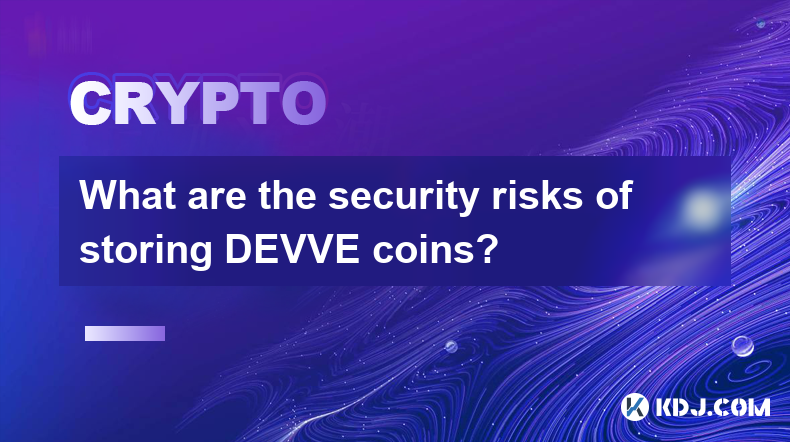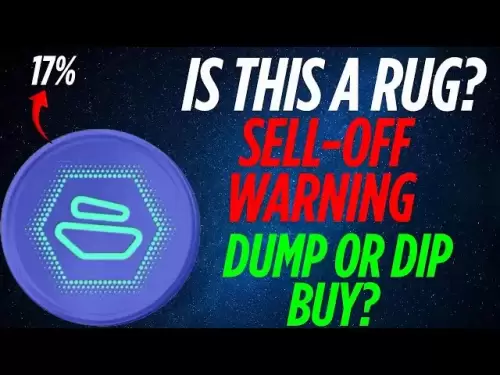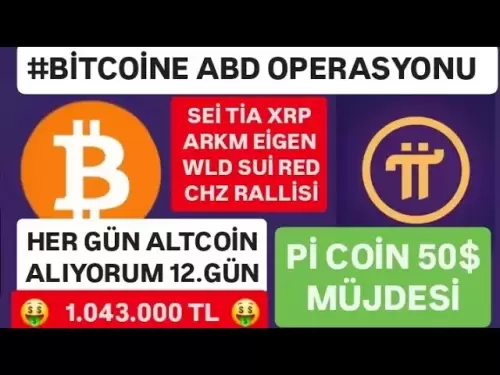-
 Bitcoin
Bitcoin $108,708.8110
0.60% -
 Ethereum
Ethereum $2,561.6057
1.91% -
 Tether USDt
Tether USDt $1.0001
-0.03% -
 XRP
XRP $2.2795
0.57% -
 BNB
BNB $662.2393
1.00% -
 Solana
Solana $153.1346
3.74% -
 USDC
USDC $1.0000
0.00% -
 TRON
TRON $0.2877
0.97% -
 Dogecoin
Dogecoin $0.1710
3.93% -
 Cardano
Cardano $0.5871
1.61% -
 Hyperliquid
Hyperliquid $39.6663
1.68% -
 Sui
Sui $2.9032
0.79% -
 Bitcoin Cash
Bitcoin Cash $496.1879
1.71% -
 Chainlink
Chainlink $13.5807
3.01% -
 UNUS SED LEO
UNUS SED LEO $9.0777
0.61% -
 Stellar
Stellar $0.2514
4.51% -
 Avalanche
Avalanche $18.1761
1.86% -
 Shiba Inu
Shiba Inu $0.0...01173
1.72% -
 Toncoin
Toncoin $2.8010
-4.23% -
 Hedera
Hedera $0.1594
3.21% -
 Litecoin
Litecoin $87.0257
-0.53% -
 Monero
Monero $319.1217
1.79% -
 Polkadot
Polkadot $3.3853
0.68% -
 Dai
Dai $0.9999
-0.01% -
 Ethena USDe
Ethena USDe $1.0003
0.02% -
 Bitget Token
Bitget Token $4.3420
-0.97% -
 Uniswap
Uniswap $7.3772
1.39% -
 Aave
Aave $286.6277
5.61% -
 Pepe
Pepe $0.0...09994
2.33% -
 Pi
Pi $0.4589
1.76%
What are the security risks of storing DEVVE coins?
Storing DEVVE coins securely requires an understanding of the digital nature of crypto assets and the security risks associated with different storage methods, such as hot wallets' online vulnerabilities and cold wallets' enhanced offline protection.
Dec 27, 2024 at 05:21 pm

Key Points:
- Understanding the Nature of DEVVE Tokens
- Assessing the Security of Storage Methods: Hot vs. Cold Wallets
- Identifying Potential Vulnerabilities in Hot Wallets
- Enhancing Security with Cold Wallets
- Utilizing Multi-Factor Authentication and Encrypted Backups
- Monitoring Transactions and Detecting Unauthorized Activity
- Keeping Software and Operating Systems Updated
What are the Security Risks of Storing DEVVE Coins?
DEVVE coins, as cryptocurrency assets, are susceptible to various security risks due to their digital nature and widespread adoption. Understanding these risks is crucial for safeguarding your DEVVE holdings and mitigating potential financial losses.
Understanding the Nature of DEVVE Tokens:
DEVVE coins exist as digital assets on the blockchain network. Their value and ownership are recorded and validated through decentralized ledgers, ensuring transparency and immutability. However, this digital existence also presents unique security challenges that centralized financial systems do not encounter.
Assessing the Security of Storage Methods: Hot vs. Cold Wallets:
DEVVE coins can be stored in hot wallets or cold wallets, each with distinct security features. Hot wallets, such as mobile or desktop applications, provide convenient access for everyday transactions but remain connected to the internet, exposing them to potential hacking attempts. In contrast, cold wallets, like hardware devices or paper wallets, store DEVVE coins offline, offering enhanced security by eliminating online vulnerabilities.
Identifying Potential Vulnerabilities in Hot Wallets:
Hot wallets, while convenient, face several security risks. Phishing scams can trick users into revealing their private keys, allowing malicious actors to access their DEVVE holdings. Malware and viruses can also infect hot wallets, compromising the security of stored funds. Additionally, leaving hot wallets connected to the internet for extended periods increases the risk of unauthorized access.
Enhancing Security with Cold Wallets:
Cold wallets provide superior security compared to hot wallets by isolating DEVVE coins from the internet. Hardware wallets, physical devices that resemble USB drives, store private keys securely and require physical interaction to authorize transactions. Paper wallets, generated offline and containing printed private keys, offer a basic but effective offline storage solution.
Utilizing Multi-Factor Authentication and Encrypted Backups:
Multi-factor authentication (MFA) adds an extra layer of security by requiring multiple forms of identification, such as a password, a one-time code, or biometrics, to access DEVVE wallets. Encrypted backups ensure that even if your device is compromised, your DEVVE coins remain protected by strong encryption.
Monitoring Transactions and Detecting Unauthorized Activity:
Regularly monitoring transaction history is crucial for detecting any unauthorized activity. Check for unfamiliar addresses, unusual amounts, or suspicious patterns. Consider setting up alerts to notify you of any anomalies in your DEVVE wallet.
Keeping Software and Operating Systems Updated:
Regularly updating your wallet software and operating system patches critical security vulnerabilities that could be exploited by malicious actors. Software updates often include security enhancements to protect against emerging threats.
FAQs on DEVVE Coin Storage Security
Q: Where should I store my DEVVE coins?
A: The choice between a hot wallet and a cold wallet depends on your individual needs. Hot wallets offer convenience, while cold wallets provide enhanced security.
Q: Are my DEVVE coins safe in a hot wallet?
A: Hot wallets pose some security risks due to their online connectivity. Employing strong passwords, enabling MFA, and regularly updating software can mitigate these risks.
Q: How secure are cold wallets?
A: Cold wallets offer higher security as they are not connected to the internet. Choose reputable hardware wallets or securely store your private keys offline in paper wallets.
Q: What is the best way to protect my DEVVE holdings?
A: Employ a combination of security measures, such as strong passwords, MFA, encrypted backups, and regular software updates. Additionally, consider storing a portion of your DEVVE coins in cold wallets for enhanced protection.
Q: How can I recover my DEVVE coins if my wallet is compromised?
A: If you have encrypted backups, you can restore your DEVVE coins to a new wallet. However, if you lose both your wallet and your backups, recovering your funds may be difficult or impossible.
Disclaimer:info@kdj.com
The information provided is not trading advice. kdj.com does not assume any responsibility for any investments made based on the information provided in this article. Cryptocurrencies are highly volatile and it is highly recommended that you invest with caution after thorough research!
If you believe that the content used on this website infringes your copyright, please contact us immediately (info@kdj.com) and we will delete it promptly.
- Ripple, XRP, and AI Tokens: Is Ruvi AI the Next Big Thing?
- 2025-07-08 05:30:12
- Crypto Investment: BlockDAG, Litecoin, and the Solana Meme Coin Mania
- 2025-07-08 06:10:12
- Altcoins in Focus: BlockDAG, Litecoin, and the Shifting Crypto Landscape
- 2025-07-08 05:35:12
- BNB's Bullish Breakout: Riding the $600 Support Level Wave
- 2025-07-08 04:55:13
- Solana ETF on Hold: SEC Delay and Crypto Regulation Scrutiny
- 2025-07-08 06:10:12
- Altcoin, Date, Price: Navigating the Crypto Bill & Meme Coin Mania
- 2025-07-08 06:15:12
Related knowledge

How to customize USDT TRC20 mining fees? Flexible adjustment tutorial
Jun 13,2025 at 01:42am
Understanding USDT TRC20 Mining FeesMining fees on the TRON (TRC20) network are essential for processing transactions. Unlike Bitcoin or Ethereum, where miners directly validate transactions, TRON uses a delegated proof-of-stake (DPoS) mechanism. However, users still need to pay bandwidth and energy fees, which are collectively referred to as 'mining fe...

USDT TRC20 transaction is stuck? Solution summary
Jun 14,2025 at 11:15pm
Understanding USDT TRC20 TransactionsWhen users mention that a USDT TRC20 transaction is stuck, they typically refer to a situation where the transfer of Tether (USDT) on the TRON blockchain has not been confirmed for an extended period. This issue may arise due to various reasons such as network congestion, insufficient transaction fees, or wallet-rela...

How to cancel USDT TRC20 unconfirmed transactions? Operation guide
Jun 13,2025 at 11:01pm
Understanding USDT TRC20 Unconfirmed TransactionsWhen dealing with USDT TRC20 transactions, it’s crucial to understand what an unconfirmed transaction means. An unconfirmed transaction is one that has been broadcasted to the blockchain network but hasn’t yet been included in a block. This typically occurs due to low transaction fees or network congestio...

How to check USDT TRC20 balance? Introduction to multiple query methods
Jun 21,2025 at 02:42am
Understanding USDT TRC20 and Its ImportanceUSDT (Tether) is one of the most widely used stablecoins in the cryptocurrency market. It exists on multiple blockchain networks, including TRC20, which operates on the Tron (TRX) network. Checking your USDT TRC20 balance accurately is crucial for users who hold or transact with this asset. Whether you're sendi...

What to do if USDT TRC20 transfers are congested? Speed up trading skills
Jun 13,2025 at 09:56am
Understanding USDT TRC20 Transfer CongestionWhen transferring USDT TRC20, users may occasionally experience delays or congestion. This typically occurs due to network overload on the TRON blockchain, which hosts the TRC20 version of Tether. Unlike the ERC20 variant (which runs on Ethereum), TRC20 transactions are generally faster and cheaper, but during...

The relationship between USDT TRC20 and TRON chain: technical background analysis
Jun 12,2025 at 01:28pm
What is USDT TRC20?USDT TRC20 refers to the Tether (USDT) token issued on the TRON blockchain using the TRC-20 standard. Unlike the more commonly known ERC-20 version of USDT (which runs on Ethereum), the TRC-20 variant leverages the TRON network's infrastructure for faster and cheaper transactions. The emergence of this version came as part of Tether’s...

How to customize USDT TRC20 mining fees? Flexible adjustment tutorial
Jun 13,2025 at 01:42am
Understanding USDT TRC20 Mining FeesMining fees on the TRON (TRC20) network are essential for processing transactions. Unlike Bitcoin or Ethereum, where miners directly validate transactions, TRON uses a delegated proof-of-stake (DPoS) mechanism. However, users still need to pay bandwidth and energy fees, which are collectively referred to as 'mining fe...

USDT TRC20 transaction is stuck? Solution summary
Jun 14,2025 at 11:15pm
Understanding USDT TRC20 TransactionsWhen users mention that a USDT TRC20 transaction is stuck, they typically refer to a situation where the transfer of Tether (USDT) on the TRON blockchain has not been confirmed for an extended period. This issue may arise due to various reasons such as network congestion, insufficient transaction fees, or wallet-rela...

How to cancel USDT TRC20 unconfirmed transactions? Operation guide
Jun 13,2025 at 11:01pm
Understanding USDT TRC20 Unconfirmed TransactionsWhen dealing with USDT TRC20 transactions, it’s crucial to understand what an unconfirmed transaction means. An unconfirmed transaction is one that has been broadcasted to the blockchain network but hasn’t yet been included in a block. This typically occurs due to low transaction fees or network congestio...

How to check USDT TRC20 balance? Introduction to multiple query methods
Jun 21,2025 at 02:42am
Understanding USDT TRC20 and Its ImportanceUSDT (Tether) is one of the most widely used stablecoins in the cryptocurrency market. It exists on multiple blockchain networks, including TRC20, which operates on the Tron (TRX) network. Checking your USDT TRC20 balance accurately is crucial for users who hold or transact with this asset. Whether you're sendi...

What to do if USDT TRC20 transfers are congested? Speed up trading skills
Jun 13,2025 at 09:56am
Understanding USDT TRC20 Transfer CongestionWhen transferring USDT TRC20, users may occasionally experience delays or congestion. This typically occurs due to network overload on the TRON blockchain, which hosts the TRC20 version of Tether. Unlike the ERC20 variant (which runs on Ethereum), TRC20 transactions are generally faster and cheaper, but during...

The relationship between USDT TRC20 and TRON chain: technical background analysis
Jun 12,2025 at 01:28pm
What is USDT TRC20?USDT TRC20 refers to the Tether (USDT) token issued on the TRON blockchain using the TRC-20 standard. Unlike the more commonly known ERC-20 version of USDT (which runs on Ethereum), the TRC-20 variant leverages the TRON network's infrastructure for faster and cheaper transactions. The emergence of this version came as part of Tether’s...
See all articles

























































































